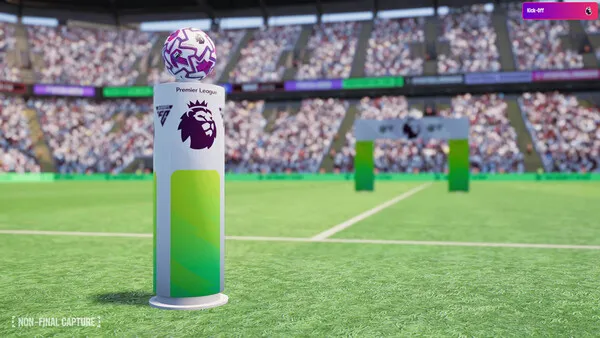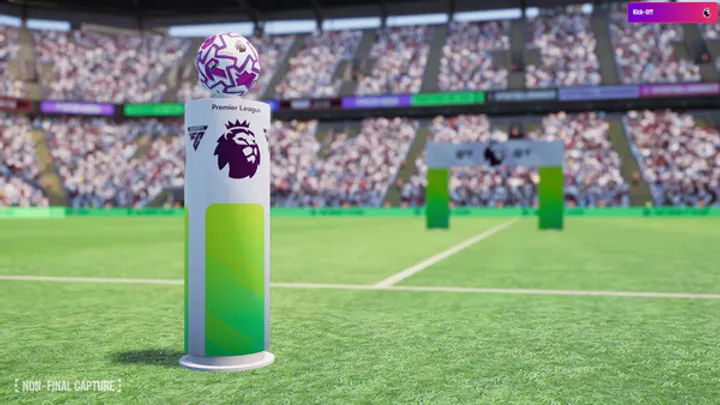In Football Manager 2026, realism isn’t just a feature — it’s the philosophy driving the entire simulation.
Every pass, transfer, and conversation now feels eerily human, thanks to the game’s most advanced AI engine yet. But with this leap in authenticity comes a paradox: as the game world becomes more realistic, the player’s sense of control begins to fade.
For decades, Football Manager thrived on mastery — the satisfaction of tweaking tactics, scouting hidden gems, and watching spreadsheets turn into silverware. Yet FM26 redefines that relationship. Managers no longer simply command; they negotiate with complex digital personalities that push back, hesitate, and even rebel.
This deep dive explores how Football Manager 2026’s pursuit of realism creates both brilliance and frustration — reshaping what it means to manage in a world where data and emotion collide.
The Evolution of Simulation
For years, the Football Manager series built its reputation on detail. The database of over 800,000 players and staff became legendary, forming the backbone of its simulation. But FM26 marks a fundamental shift — the focus is no longer on static accuracy, but on dynamic authenticity.
Sports Interactive’s new AI framework allows players, staff, and even journalists to develop emotional memory. They “remember” past interactions and adjust responses accordingly.
A once-loyal captain might ignore your pep talk if you previously benched him unfairly. Agents might inflate contract demands based on your reputation.
This evolution bridges simulation and storytelling — transforming the managerial role from strategist to psychologist.

When Realism Challenges Control
With great realism comes great unpredictability. FM26’s decision-making AI, while sophisticated, often feels too human. Players react emotionally rather than logically.
A striker might request a transfer after one bad team talk. A board could override your signing because of “branding alignment.”
This unpredictability introduces a key tension: when the game world behaves realistically, players lose the illusion of control.
The essence of management shifts from executing a perfect system to surviving imperfect systems — just like real football.
Yet many players struggle with this transition. When the match engine and AI interactions behave erratically, realism feels like chaos, not immersion.
The AI Engine and the Death of Predictability
The heart of FM26’s transformation is its Cognitive Play Engine — a neural model that simulates player intent.
Unlike older versions, which calculated outcomes from predefined scripts, the new AI uses pattern recognition to “decide” actions dynamically.
This means:
- A defender may misjudge a header due to mental fatigue, not just random error.
- Midfielders assess space based on form, confidence, and tactical familiarity.
- Pressing and passing chains evolve organically rather than repeating animations.
For purists, it’s revolutionary. For veterans, it’s unnerving. Suddenly, matches feel less like puzzles and more like living ecosystems — harder to read, harder to master, and infinitely more volatile.
The Manager’s Emotional Load
Managing in FM26 isn’t just about tactics; it’s about emotional intelligence.
Players sulk, gossip, and react to subtle cues. A poorly timed team talk can undo weeks of morale building.
What used to be a system of clear feedback — green arrows for motivation, red for unhappiness — is now a murky psychological map.
Success depends on empathy and timing as much as formation or pressing triggers.
Managers must:
- Tailor tone and language to personality archetypes.
- Rotate leadership roles carefully to prevent ego clashes.
- Handle media narratives that influence dressing-room dynamics.
It’s a masterpiece of simulation but also a test of patience. The AI no longer tells you what it needs — it makes you guess.

Tactical Identity in Flux
One of FM26’s most debated changes lies in its Adaptive Tactical Layer.
The AI now learns your patterns and counters them across seasons. High pressing systems lose efficiency over time; defensive blocks evolve to nullify overlapping fullbacks.
This forces managers to evolve tactically like real coaches — no more plug-and-play metas.
But it also frustrates players who thrive on optimization. Every carefully tuned tactic eventually decays.
For many, this cycle embodies Dota-like patch dynamics: what works today won’t tomorrow. FM26 demands evolution, not repetition — a philosophy that keeps the game fresh but emotionally draining.
Data vs. Instinct
FM26’s analytical suite is more advanced than ever. You can now model player development, predict match outcomes, and simulate scouting pipelines using machine learning predictions.
Yet the irony is striking: the more data you have, the less certain you feel.
Every metric has context — morale, cohesion, match load — making raw stats unreliable without intuition.
This brings FM26 closer to the real managerial experience, where gut feeling often trumps analytics. You might sign a statistically inferior player because his mentality profile fits your locker room.
The game quietly asks: Do you trust numbers or your instincts?
The Human Boardroom
The boardroom in FM26 no longer feels like a checklist of objectives — it feels like an office full of opinions.
Chairmen challenge your philosophy. Financial directors veto transfers that threaten wage balance. Club vision now evolves based on your achievements and style.
This humanizes the management layer but also creates friction. A visionary rebuild can collapse under bureaucratic politics.
Some managers embrace it; others see it as needless resistance.
Yet it captures the essence of football: success isn’t just tactical genius — it’s political survival. FM26 turns board meetings into battlegrounds of ideology and pragmatism.
Youth Development and the Chaos of Potential
The promise of FM26’s “Youth DNA” system is mesmerizing. Prospects no longer develop along linear curves; their growth fluctuates with confidence, mentorship, and playing time.
A wonderkid may stagnate after poor morale. A fringe academy player may explode after one breakout performance.
This unpredictability mirrors real football’s cruel randomness — but it also breaks the comfort of planning.
Gone are the days of guaranteed superstar development. FM26 asks managers to nurture personalities, not statistics.
Every teenager becomes a human narrative rather than a spreadsheet.

When the Simulation Bites Back
There are moments in FM26 when the game feels too real.
You dominate possession, create 25 chances, and still lose 0–1 to a deflected goal. The post-match data blames “composure” or “decision-making.” You blame the game.
But here’s the truth: FM26 doesn’t cheat — it simulates uncertainty.
Football is cruel, and FM26 captures that cruelty better than ever. The pain of losing now feels justified, even poetic. The joy of winning, when it comes, feels earned.
Still, not everyone wants that realism. Many players prefer systems they can master, not mysteries they must endure.
The Future of Managerial Realism
FM26 marks a turning point — the series is no longer about control, but about coping.
By pushing realism to the edge, Sports Interactive risks alienating players who loved the comfort of predictable mastery.
Yet this evolution may define the next decade of sports simulation: games that reflect the psychology of management, not just its logistics.
The line between game and reality blurs further each year. And as AI continues to evolve, the future Football Manager may no longer simulate football — it may simulate you.
Conclusion
Football Manager 2026 isn’t a perfect game. It’s an uncomfortable one — ambitious, unstable, and profoundly human.
By surrendering control to complex AI behaviors, Sports Interactive has captured the essence of management in its purest form: the tension between knowledge and chaos.
For players, this means learning to let go — to guide rather than dictate, to influence rather than command.
It’s not the football manager you control; it’s the one you become.

















